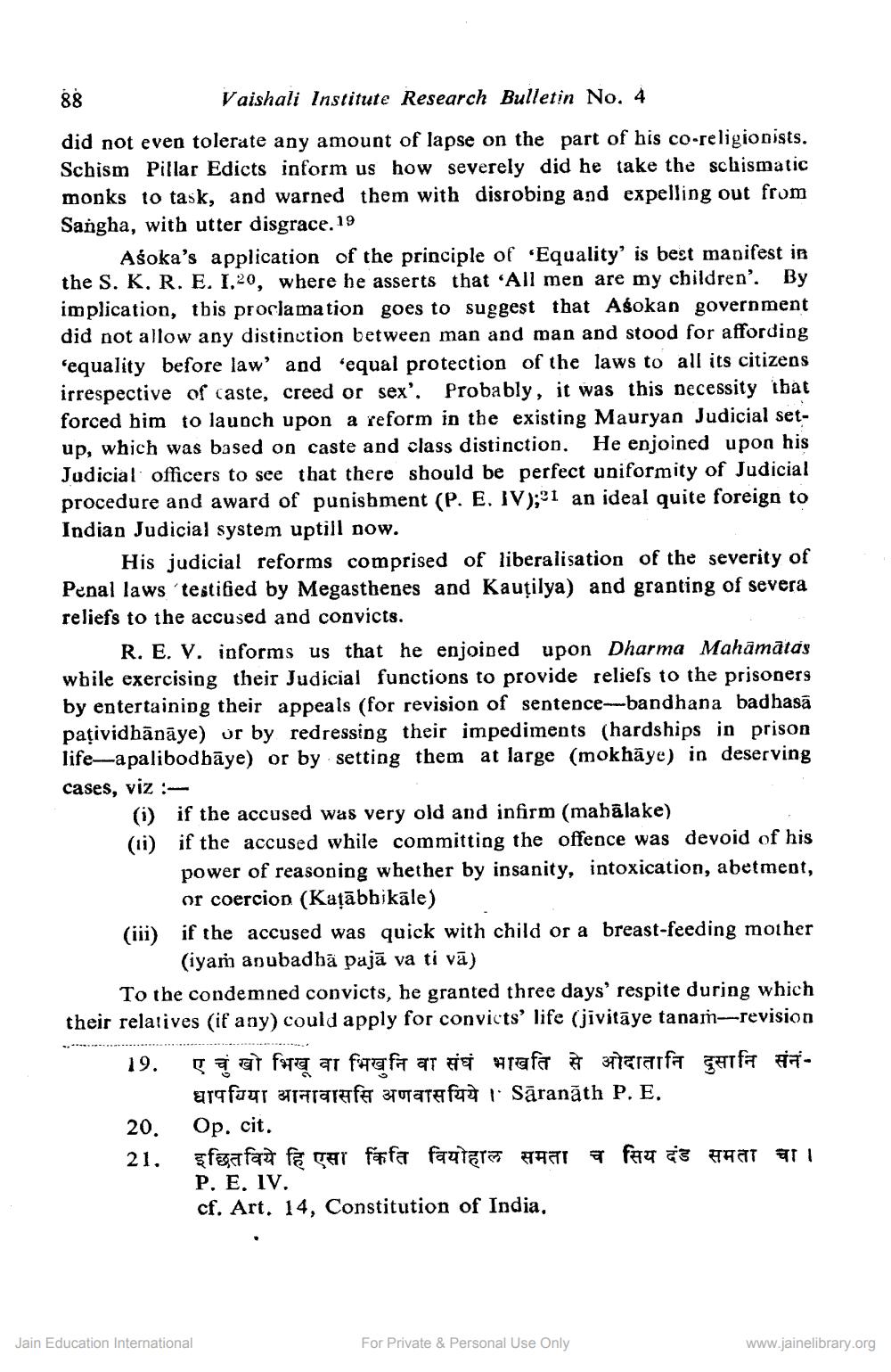________________
88
Vaishali Institute Research Bulletin No. 4
did not even tolerate any amount of lapse on the part of his co-religionists. Schism Pillar Edicts inform us how severely did he take the schismatic monks to task, and warned them with disrobing and expelling out from Sangha, with utter disgrace. 19
Aśoka's application of the principle of Equality' is best manifest in the S. K. R. E. I.20, where he asserts that 'All men are my children'. By implication, this proclamation goes to suggest that Aśokan government did not allow any distinction between man and man and stood for affording 'equality before law' and 'equal protection of the laws to all its citizens irrespective of caste, creed or sex'. Probably, it was this necessity that forced him to launch upon a reform in the existing Mauryan Judicial setup, which was based on caste and class distinction. He enjoined upon his Judicial officers to see that there should be perfect uniformity of Judicial procedure and award of punishment (P. E. IV);21 an ideal quite foreign to Indian Judicial system uptill now.
His judicial reforms comprised of liberalisation of the severity of Penal laws testified by Megasthenes and Kautilya) and granting of severa reliefs to the accused and convicts.
R. E. V. informs us that he enjoined upon Dharma Mahāmātas while exercising their Judicial functions to provide reliefs to the prisoners by entertaining their appeals (for revision of sentence-bandhana badhasa paţividhānāye) or by redressing their impediments (hardships in prison life-apalibodhaye) or by setting them at large (mokhaye) in deserving cases, viz:
(i) if the accused was very old and infirm (mahālake)
(i) if the accused while committing the offence was devoid of his power of reasoning whether by insanity, intoxication, abetment, or coercion (Kaṭābhikāle)
(iii) if the accused was quick with child or a breast-feeding mother (iyam anubadhā pajā va ti vā)
To the condemned convicts, he granted three days' respite during which their relatives (if any) could apply for convicts' life (jivitaye tanam-revision
19.
20.
21.
ए चुं खो भिखू वा भिखुनि वा संघं भाखति से ओदातानि दुसानि संनंधापरिया आनावाससि अणवासयिये । Sāranāth P.E.
Op. cit.
feafat fe var fafa वियोहाल समता च सिय दंड समता चा ।
P. E. IV.
cf. Art. 14, Constitution of India.
Jain Education International
For Private & Personal Use Only
www.jainelibrary.org




